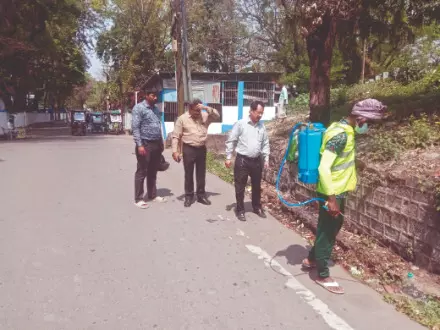Health dept ramps up insecticide supply to combat dengue, malaria

Jalpaiguri: In a proactive move to curb the spread of mosquito-borne diseases, the West Bengal Health Department has approved the allocation of additional insecticides to high-risk areas in North Bengal, where dengue and malaria cases have surged in recent years.
The department will supply bio-larvicide Temephos and the liquid insecticide Strain Evil to gram panchayats across seven districts and the Siliguri subdivision.
Officials stated that allocations have been determined based on the intensity of past outbreaks. Areas with higher incidence will receive greater quantities, while lower-risk areas will get reduced supplies. The decision comes amid rising mosquito infestations across the region, driven by the absence of continuous rainfall.
The insecticides will be procured from the state Medical Services Corporation Limited and distributed to districts in the coming days.
According to the department, 1,510 kg of Temephos has been allocated to 64 gram panchayats in Alipurduar (23.59 kg per panchayat), 3,810 kg to 128 panchayats in Cooch Behar (29.76 kg each), and 2,990 kg to 92 panchayats in Siliguri subdivision (32 kg each). Kalimpong, South Dinajpur, and North Dinajpur will also receive 32 kg
per panchayat. Malda district, however, will receive Strain Evil instead of Temephos — 146 panchayats will get 39 litres each, totaling 5,690 litres. An additional 100 litres has been earmarked for Siliguri as a precautionary reserve.
Dr Asim Haldar, Chief Medical Officer of Health for Jalpaiguri district, stated: “The insecticides have not yet arrived, but we expect them very soon.
More supplies will be sent to the identified hotspots where mosquito-borne diseases have been most prevalent over the past two years. Our health workers are working tirelessly to prevent outbreaks.” Health officials have identified several hotspots in Jalpaiguri district — including Malbazar, Nagrakata, Matiali, Banarhat, Jalpaiguri Sadar blocks, and Rajganj — as well as 14 wards under the Siliguri Municipal Corporation, where dengue and malaria have taken a serious turn in recent years.
These areas are expected to receive higher-than-average pesticide supplies.



